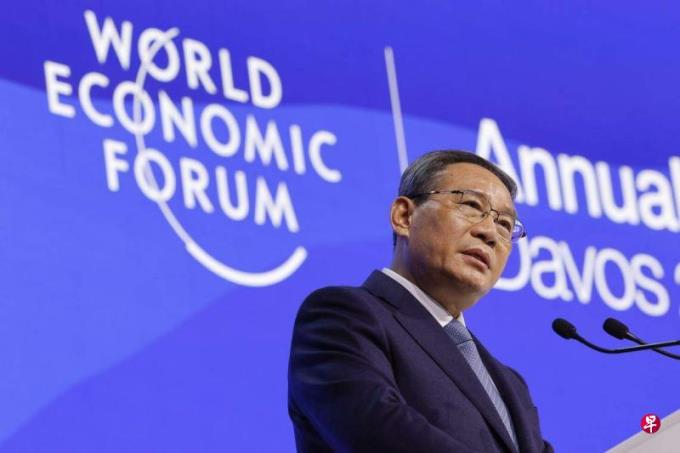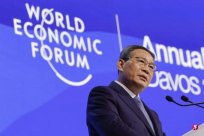
Under the pressure of foreign investment, mainland China and the Hong Kong stock market have fallen.Following the decline in 2023, the beginning of this year continued.Last Monday (January 22), the Shanghai Stock Exchange Index reflecting the performance of the Shanghai stock market fell below 2800 points, setting a new low in the past four years.Essence
The China -Hong Kong stock market is sluggish, forming a strong contrast to the American stock market like a rainbow.According to statistics, the market value of the China -Hong Kong stock market has evaporated more than 6.3 trillion US dollars from the peak in February 2021.During the same period, the market value of the US stock market increased by $ 53 trillion.This is the same, and the market value of the US stock market is 38 trillion US dollars higher than the total market value of the China -Hong Kong stock market.
The stock market is a barometer of the economy.The decline in the China -Hong Kong stock market reflects the concerns of foreign institutional investors in China's economic recession.Although China has achieved 5.2%economic growth in 2023, which is better than the official forecast of 5%, but the consumer price index and the producer price index and other data reflect the risk of domestic demand and tightening.In addition, the uncertainty of the macro environment and policy orientation also causes the stock market to bear pressure.
In terms of macro environment, the geopolitical contradictions in China and the United States have spread to the field of economy and technology.The United States prohibits high -end technology and the export of original accessories to China, limiting the development of China's semiconductor and biomedical companies, many of which are listed in the China -Hong Kong stock market.On the other hand, the competition pattern of China and the United States has also led to the evacuation of multinational enterprises or dispersing production lines to countries outside China.The outsourcing of the United States and the allies shakes the status of the "world factory" enjoyed by China for many years.
Secondly, the Chinese economy is transforming to reduce excessive dependence on the real estate industry and rectify local governments and corporate debt.It is estimated that the proportion of the real estate industry in China's economy is about 30%.Many real estate developers have issued huge amounts of bond financing with overseas and are engaged in high -leverage investment and speculation.
In 2020, the Chinese government introduced the "three red lines" measures to limit the loan limit of real estate developers, leading to high -leveraged real estate developers have successively appeared in debt defaults.Many overseas investors holding US dollar bonds are the first to fight against the confidence of foreign investment in the Chinese stock market.The debt defaults of real estate developers have also affected the financial sector.China ’s largest civil asset management company, China, has declared bankruptcy due to a large number of real estate companies' failure.
On the other hand, in order to reduce the gap between the rich and the poor, the Chinese government launched a "common prosperity" policy, and launched a series of anti -monopoly and anti -"capital disorder expansion" measures. It is the private platform economy.The vigorous measures restrict the expansion space of science and technology giants, and also affects the confidence of private enterprises and investors.As the market believes that anti -monopoly measures have come to an end, the National Press and Publication Administration of China has issued a draft of online game management measures. It plans to tighten the rules of online games again, which once led to a plunge in Chinese technology stocks.
Facing the above -mentioned many sharp and air factors, coupled with the termination of the epidemic restrictions, China's economic growth momentum is not as strong as expected. Investors are looking forward to the government's introduction of strong market rescue measures.However, even if facing weak economic data and stock markets, the Chinese government has not taken market measures for large water irrigation.
Li Qiang, Prime Minister of the State Council of China recently pointed out at the World Economic Forum: "We insist on not doing strong stimuli, and have not exchanged for short -term growth at the cost of accumulating long -term risks, but strive to enhance endogenous development momentum." Immediately, the People's Bank of China announced that the Central Bank of China announcedThe benchmark interest rate of one -year and five -year loan is unchanged, and it once again shows that the Chinese government does not have strong stimulus.The China -Hong Kong stock market also fell again.
Faced with the end of the China -Hong Kong stock market, some reports have pointed out that China is considering the establishment of a Pingzhong Fund with RMB 2 trillion to stabilize the stock market.However, Pan Gongsheng, the governor of the Central Bank of China at the press conference yesterday (January 24), only announced that the bank's deposit reserve ratio was 0.5 percentage points, and Wang Jianjun, vice chairman of the China Securities Regulatory Commission, only said: "We listen seriously and feel the same as the same feeling."Investors made opinions and suggestions, but there was no specific announcement.
China's economy is transforming, and excess real estate may take years of digestion, and the swing of policies reflects the tension of political and economic considerations.However, as Singapore's Deputy Prime Minister and Minister of Finance Huang Xuncai said: "Don't bet on China to decline."He pointed out that China's economy is huge and has many advantages in advanced manufacturing and green economy.In addition, China has a huge market.
Many US investment funds have evacuated the China -Hong Kong stock market on the grounds that China "cannot invest". In terms of valuation, the China -Hong Kong stock market has fallen into a deep value range.Although the Chinese economy faces many challenges, its fundamentals are still sound, and investment funds are unlikely to miss the opportunity to invest in the world's second largest economy for a long time.




